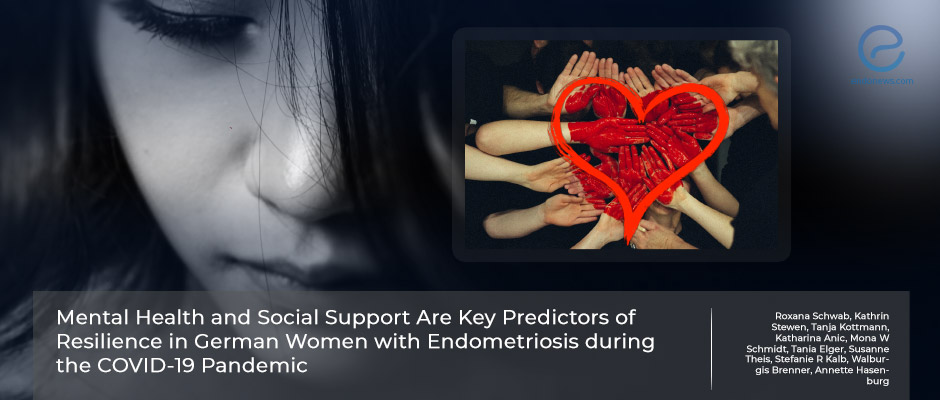Social Support is a Predictor of Resilience in Women with Endometriosis
Nov 14, 2022
Satisfying social support can increase resilience among women with the disease.
Key Points
Highlights:
- A decrease in perceived social support is the most powerful independent risk factor for low resilience among women with endometriosis during the COVID-19 pandemic.
Importance:
- Implementing resilience-building strategies in women with endometriosis could improve their mental well-being.
What's done here:
- The study evaluated resilience and mental health in women with endometriosis through an online survey conducted during the first wave of the COVID-19 pandemic.
Key results:
- Women with endometriosis who had a higher educational level had a higher resilience score.
- Resilience was negatively associated with a high burden of mental health symptoms.
Limitations:
- The online nature of the survey may have resulted in selection bias.
- There was a significant drop in the number of responders to the resilience questionnaire.
- The impact of the stage of endometriosis on resilience was not assessed.
Lay Summary
Satisfying social support and good mental health are key resources for resilience among patients with endometriosis, according to a new study published in the Journal of Clinical Medicine.
“The results of this study may assist in the identification of women at risk for low resilience and the development of resilience-building strategies in patients with endometriosis,” wrote first author Dr. Roxana Schwab and the co-authors of the study.
Endometriosis is a debilitating disease that negatively impacts a woman’s physical as well as mental well-being. Previous research has shown that resilience can act as a mediator between various stressors and well-being.
In order to assess the effect of resilience on women with endometriosis, a team of researchers from Germany led by Dr. Annette Hasenburg from the Department of Obstetrics and Gynecology, University Medical Center, Johannes Gutenberg University Mainz, Langenbeckstr in Mainz conducted an online survey through patient support groups of women with endometriosis. The survey was conducted during the first wave of the COVID-19 pandemic.
Women with a higher educational level had a higher resilience score compared to the average of all responders and were therefore an independent supportive moderator of high resilience in women.
The most powerful independent risk factor for low resilience was a decrease in perceived social support and a high burden of mental health symptoms was negatively associated with resilience, underscoring the importance of social support for mental health.
“(…) we recommend the evaluation of resilience in patients with endometriosis on a regular basis,” the researchers wrote. “Women with endometriosis who additionally experience low resilience might benefit from resilience-building measures, resilience-training programs, or interventions to strengthen existing resilient characteristics.”
Research Source: https://pubmed.ncbi.nlm.nih.gov/35806968/
resiliece mental health online survey COVID 19 physical health strategy risk factor social support education

